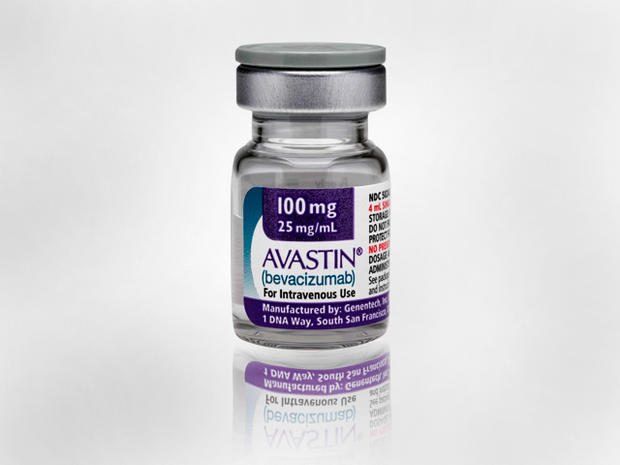Avastin fights early breast cancer in 2 studies: Will it be re-approved?
(CBS/AP) Is Avastin back in running for breast cancer treatment?
The FDA revoked Avastin's approval for treating breast cancer in November 2011, saying the drug didn't extend life and could cause dangerous side effects. But two new studies released this week show the drug made tumors disappear in women with early stages of breast cancer.
PICTURES: 2011 Year in Review: Health
PICTURES: 25 breast cancer myths busted
The studies' surprising results may reopen the debate about the value of Avastin for breast cancer. These were the first big tests of the drug for early breast cancer, and doctors were cautiously excited that it showed potential.
The new studies, one from the U.S., the other from Germany, tested Avastin in a relatively novel way - before surgery. This is sometimes done to shrink inoperable tumors, or to enable women to have just a lump removed instead of the whole breast. The women in the studies had tumors that were large enough to warrant treatment besides surgery and their cancers were not the type that could be treated by another widely used drug, Herceptin.
In the U.S. study, led by Dr. Harry Bear of Virginia Commonwealth University, 1,200 women were given chemo or chemo plus infusions of Avastin. By the time of their surgery, no cancer could be found in the breasts of more than 34 percent of those given Avastin versus 28 percent of the others who had chemo alone. Surgeons still had to operate because they don't know the tumor is gone until they check tissue samples.
The German study, led by Dr. Gunter von Minckwitz of the University of Frankfurt in Germany, involved 1,900 women including some with larger tumors. It used a stricter definition of cancer-free at surgery: no sign of disease in the breast or lymph nodes rather than just the breast. No cancer was seen in 18 percent of women on Avastin versus 15 percent of those given only chemo. Different chemo drugs were used - a factor that might change Avastin's effectiveness.
Both studies are published in the Jan. 25 issue of the New England Journal of Medicine.
A big caveat, though: The true test is whether Avastin improves survival, and it's too soon to know that since both studies are still tracking the women's health. The drug also has serious side effects, including added risk for heart problems and bleeding.
"I don't think it's clear yet whether this is going to be a winner," Bear said of Avastin. But he added, "I don't think we're done with it."
Avastin is still approved for treating some colon, lung, kidney and brain tumors. In 2008, it won conditional U.S. approval for advanced breast cancer because it seemed to slow the disease. Further research showed it didn't meaningfully prolong life and raised risk for dangerous blood clots and infection, HealthPopreported.
Now doctors can prescribe Avastin for breast cancer but insurers may not pay, and treatment can cost as much as $10,000 a month. The drug is made by California-based Genentech, part of the Swiss company Roche. It is still approved for treating advanced breast cancer in Europe and Japan.
If even one of these new studies shows a survival advantage for Avastin "that would be a game changer" although side effects remain a concern, said Dr. Gary Lyman, a cancer researcher at Duke University who was on the federal advisory panel that recommended revoking Avastin's approval.
However, von Minckwitz said side effects are more justifiable in early breast cancer patients because "the intention is cure" rather than in late-stage disease where cure isn't usually possible.
Of the more than 200,000 women in the U.S. diagnosed each year with breast cancer, about 30,000 are like those in the new studies, Lyman estimated.
But the studies' impact could be far greater: The participants' tissue samples are being analyzed for genes and biomarkers to predict which women are most likely to respond to Avastin. That could help individualize treatment for certain women with advanced disease, too.
Three other studies are under way testing Avastin in early breast cancer; one is expected to have results by the end of this year, said Dr. Sandra Horning, global development chief of cancer drugs for Roche and Genentech. The company does not plan to seek any change in Avastin's use until more results are available, she said.

